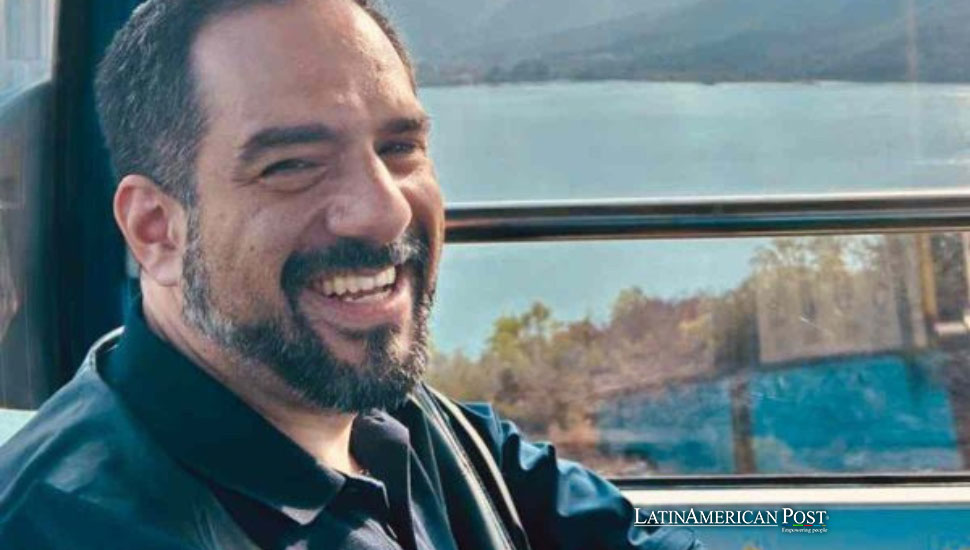Diplomacy and Justice: Mexican Manuel Guerrero’s Qatar Ordeal Ends

The release of Manuel Guerrero Aviña from Qatar, following allegations of wrongful detention due to his sexual orientation, marks a significant victory for Mexican diplomacy. The case highlights the challenges and triumphs in protecting citizens abroad.
The release of Mexican citizen Manuel Guerrero Aviña from detention in Qatar is being celebrated as a triumph of diplomacy. Alicia Bárcena, Mexico’s Secretary of Foreign Affairs, expressed her satisfaction with the outcome, emphasizing the dedicated efforts of the Mexican embassy in Qatar. The case had drawn international attention due to allegations that Guerrero was detained because of his sexual orientation, a claim that added urgency to the Mexican government’s involvement.
Bárcena took to social media to thank Ambassador Guillermo Ordorica and his team and Vanessa Calva, the Director General of Consular Protection and Strategic Planning at the SRE, for their relentless work in securing Guerrero’s release. “I am delighted to know that Manuel Guerrero Aviña has definitively left Qatar,” Bárcena stated. “Their commitment to Mexico and our fellow citizens is a source of pride.”
The successful resolution of this case underscores the importance of Mexico’s diplomatic network and the lengths it will go to protect its citizens, even when they are abroad and facing complex legal situations. The Foreign Ministry’s involvement was crucial in navigating Guerrero’s detention’s legal and diplomatic challenges, ultimately securing his safe passage to London.
The Ordeal in Qatar
Manuel Guerrero Aviña’s experience in Qatar was a harrowing ordeal that began on February 4th when he was arrested in Doha under controversial circumstances. According to his family, Guerrero was detained after arranging a meeting through the dating app Grindr, where Qatari authorities allegedly created a fake profile to entrap him. This method of arrest has raised serious questions about the motivations behind his detention, with his sexual orientation cited as a likely factor.
Guerrero was charged with drug possession, a claim he and his family vehemently denied. Despite their protests, Guerrero was sentenced on June 4th, with the court affirming his conviction for possession of drugs and related offenses. Throughout his detention, Guerrero maintained his innocence, insisting that the charges were baseless and constituted a severe violation of his human rights.
During his nearly month-long imprisonment, Guerrero faced brutal conditions. He reported being forced to sign documents he couldn’t read, being deprived of water for over a day, and being denied access to vital HIV treatment. These allegations of mistreatment, coupled with the questionable circumstances of his arrest, have sparked outrage and concern among human rights activists and the international community.
Campaigns and International Attention
Guerrero’s case quickly gained the attention of activists and organizations who rallied to support his cause. A committee was formed in his name, which launched a campaign to pressure the Mexican government into taking action. Initially, the government hesitated to intervene, citing Guerrero’s registration as a British citizen in Qatar. However, the growing outcry and the dire nature of his situation eventually prompted the Mexican Foreign Ministry to step in.
The committee’s advocacy played a critical role in bringing Guerrero’s plight to light, using social media and other platforms to raise awareness about his injustices. The case became a symbol of the broader struggle for LGBTQ+ rights and the dangers faced by individuals in countries with restrictive laws on sexuality. The campaign’s success in mobilizing support underscores the power of collective action in defending human rights.
On August 21st, the committee announced on social media that Guerrero had “flown free and with dignity to London,” where he would receive medical treatment for the injuries and trauma sustained during his imprisonment. The post highlighted the relief and hope that came with Guerrero’s release but also served as a reminder of the ongoing fight for justice and equality.
Lessons and the Path Forward
Manuel Guerrero Aviña’s case is a stark reminder of the complexities and dangers that can arise when citizens are in legal trouble abroad, particularly in countries with vastly different legal and cultural norms. It also highlights the critical role of diplomacy in protecting citizens’ rights and ensuring their safety.
The successful intervention by the Mexican Foreign Ministry, led by Alicia Bárcena, showcases the importance of having a robust and responsive diplomatic service. Guerrero’s release would not have been possible without the coordinated efforts of diplomats, legal experts, and human rights advocates working tirelessly across borders. It is a testament to what can be achieved when a nation stands firm in its commitment to protecting its citizens, regardless of where they are.
Looking forward, this case also raises important questions about the treatment of LGBTQ+ individuals in countries where their rights are not recognized or protected. Guerrero’s ordeal serves as a call to action for more excellent international advocacy and pressure to uphold human rights universally. As Guerrero continues his recovery in London, his case will likely remain a touchstone in discussions about diplomatic protection, LGBTQ+ rights, and the global struggle for justice.
Also read: Las víctimas olvidadas de los “vuelos de la muerte” de México
The resolution of Manuel Guerrero Aviña’s detention in Qatar marks a significant diplomatic victory for Mexico and a crucial moment in the ongoing fight for human rights. The case underscores the importance of vigilant and proactive diplomatic efforts, especially when citizens face persecution abroad. While Guerrero’s ordeal has ended, the implications of his case continue to resonate, reminding us of the enduring need for justice, equality, and the protection of human rights worldwide.




